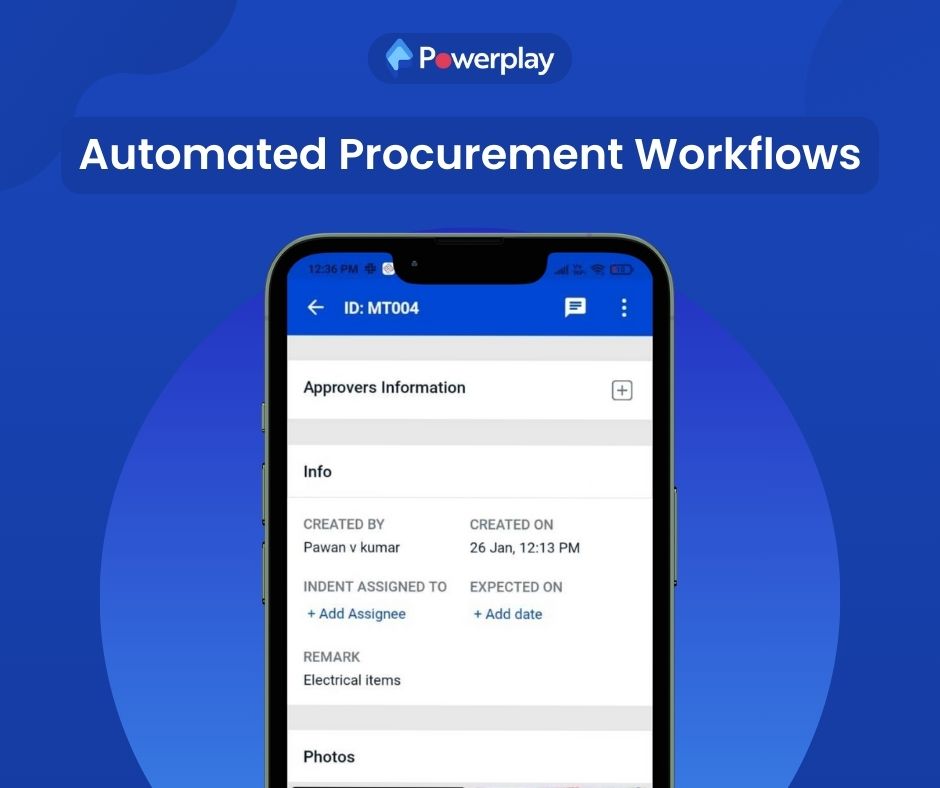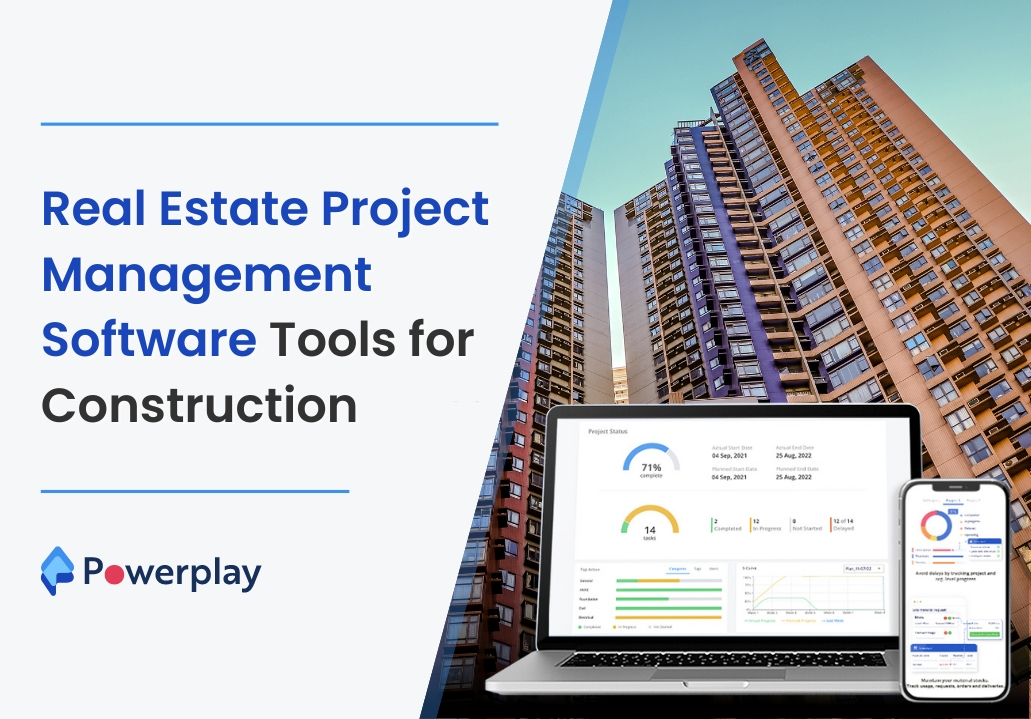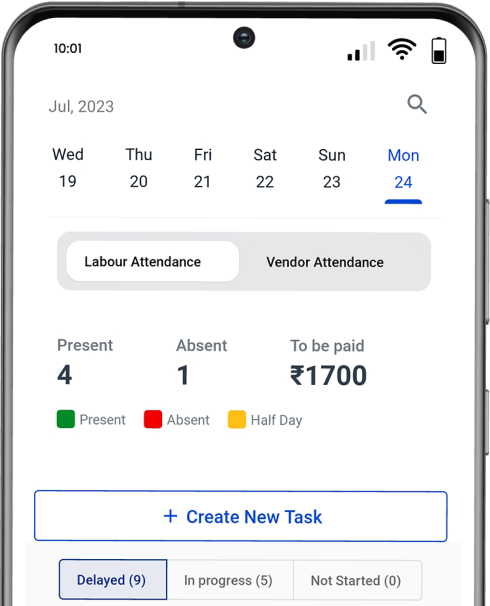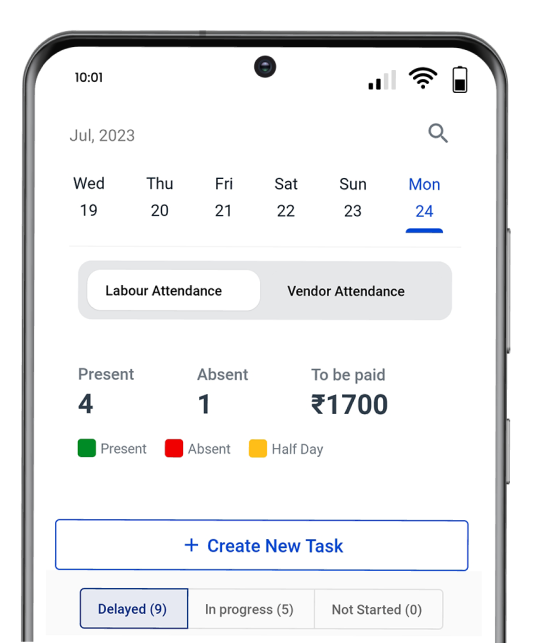Best Construction Inventory Management Software
-
Sapna
- April 17, 2024
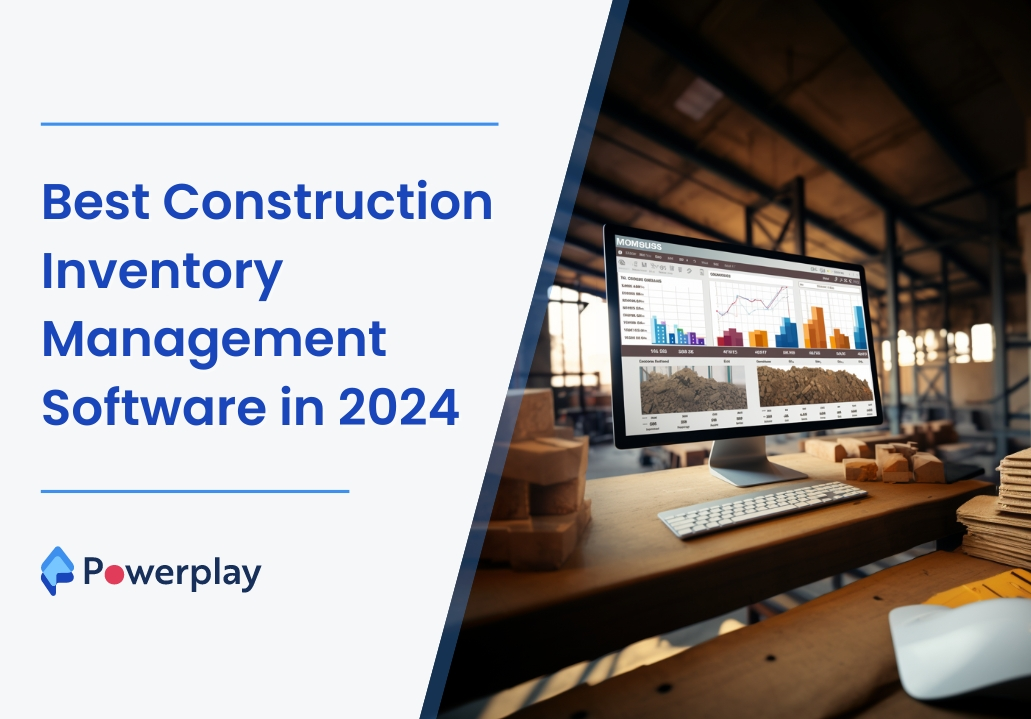
Managing inventory has always been a big task in the construction industry. You must constantly look after minor details like materials, tools, and equipment while keeping your project on schedule and within budget. This task has been challenging, but with the appropriate inventory management software, it can be much easier.
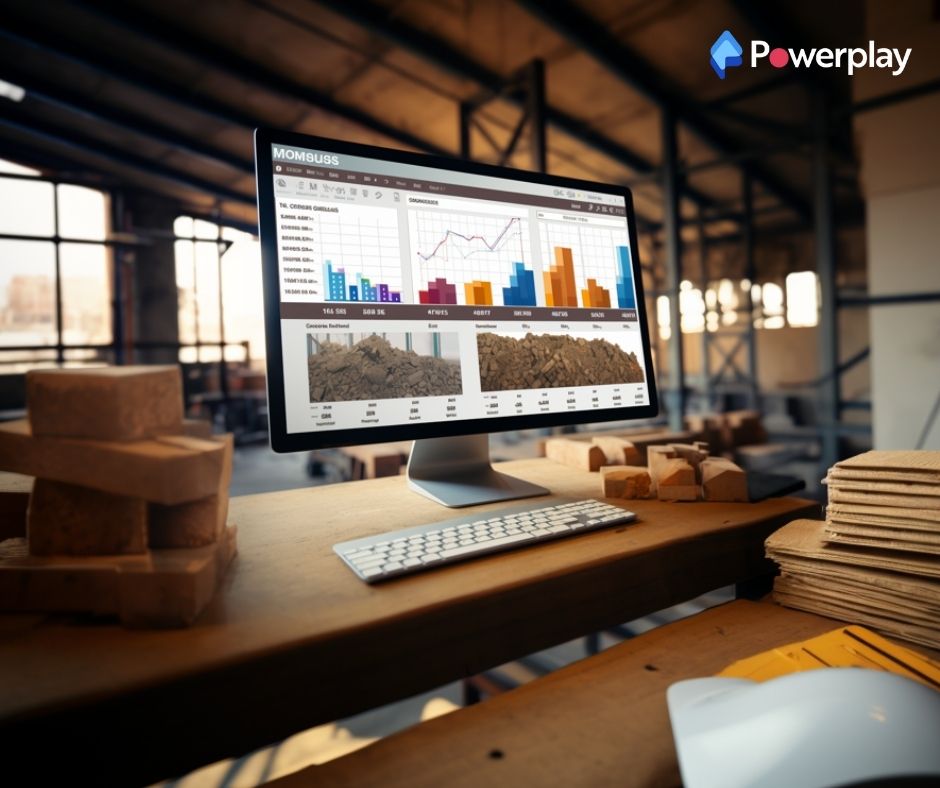
Construction inventory software helps the owner and other stakeholders manage the inventory more efficiently by providing real-time data on inventory levels. It also ensures that materials are available when needed, preventing delays and the costly rush of last-minute procurement.
In this blog, we will explore different inventory management software and its key features to find the best fit for your project needs.
Table of Contents
ToggleWhat is Inventory Management Software for the Construction Industry?
Inventory Management Software for the construction industry is a sophisticated tool designed to optimise handling materials, tools, and equipment necessary for construction projects. This software is crucial for ensuring these resources are available at the right time and place to prevent delays and maintain budget control.
It allows construction firms to track real-time inventory levels, manage orders, and ensure materials are delivered to the right job site when needed. Moreover, it supports better forecasting, reduces instances of overstocking or shortages, and helps manage inventory across multiple locations, a common challenge in large-scale construction projects.
What Are The Types of Inventory?
In the construction industry, inventory types can be broadly categorised into several key groups, such as:
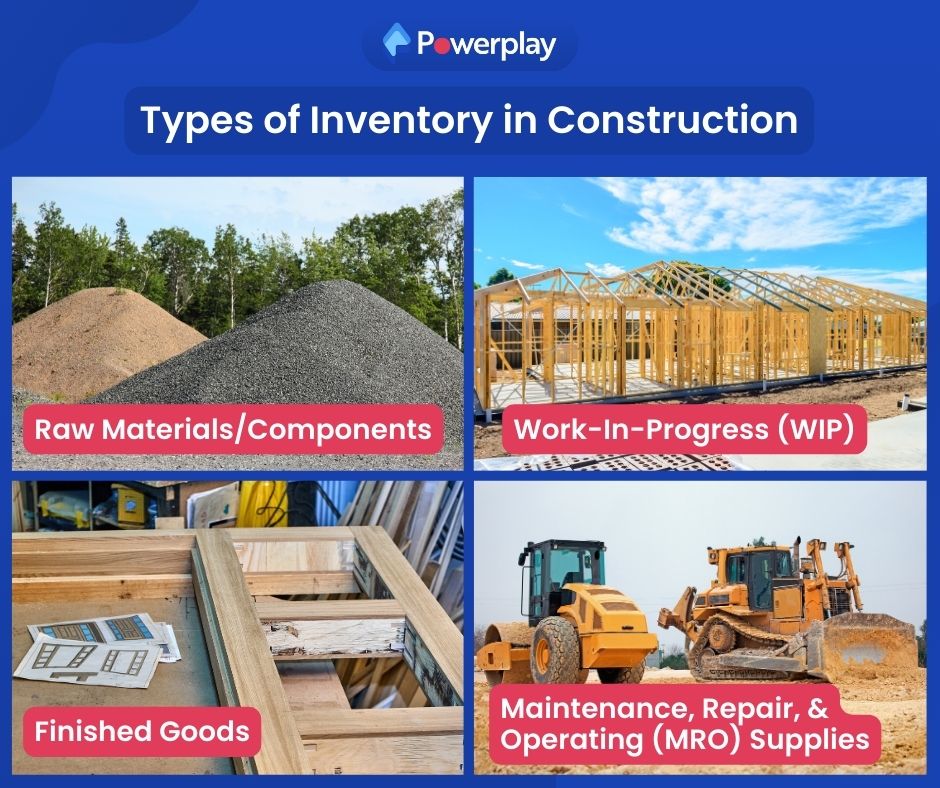
- Raw Materials/Components: These are the basic materials such as sand, cement, and timber used at the start of construction projects.
- Work-In-Progress (WIP): This inventory category represents the transformation of raw materials into partial structures, such as the construction of building frameworks.
- Finished Goods: These items are the end products in construction, ready for installation or sale, such as doors, windows, and fully assembled sections of buildings.
- Maintenance, Repair, and Operating (MRO) Supplies: This category includes the tools, machinery, and spare parts essential for the ongoing operations and maintenance of construction equipment.
Why Do Construction Companies Need Inventory Management Software?
For Construction companies, inventory software is the ultimate solution for managing big inventory headaches. It helps the owners and other stakeholders enhance efficiency and accuracy in managing materials, tools, and equipment essential for various projects. This software also helps track and control inventory in real-time and ensures that there are no delays due to shortages or overstock.
Additionally, it automates many manual tasks associated with inventory management, reducing the risk of human errors and freeing up staff to focus on more critical tasks. The inventory software also supports better financial planning by providing accurate data for budgeting and forecasting, which is crucial for maintaining overall profitability in the competitive construction industry.
Key Features to Look for in Construction Inventory Management Software
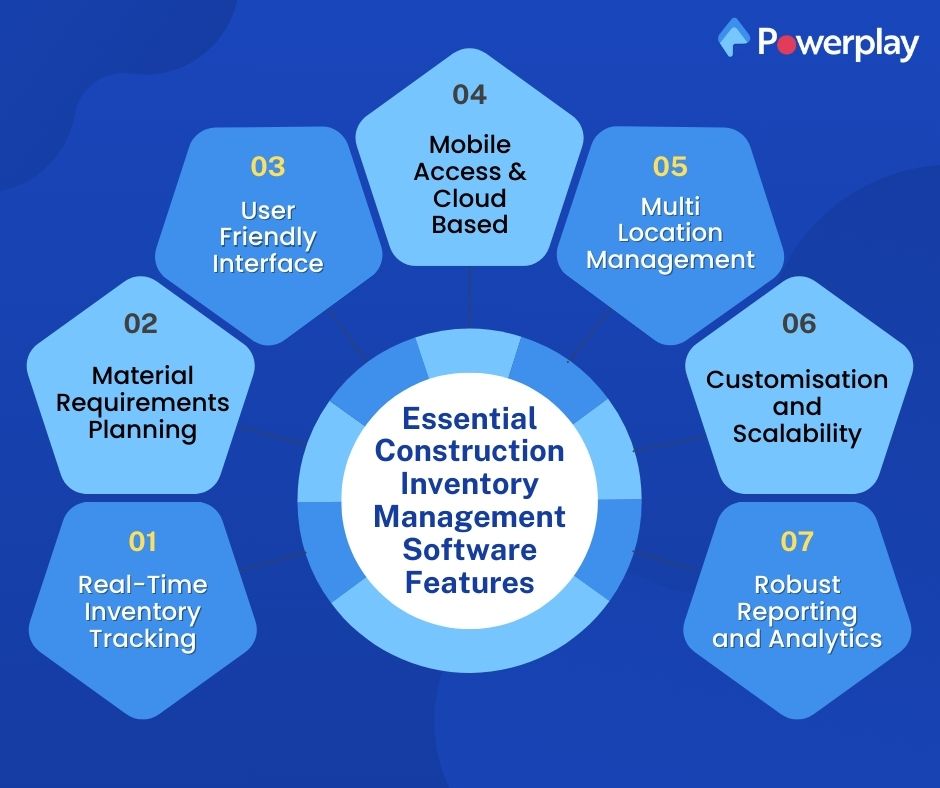
- Real-Time Inventory Tracking:
Whichever software you choose, make sure it has features that offer live updates on inventory levels, allowing you to see what’s available, what’s running low, and what needs to be reordered at any given moment. This feature helps prevent both overstocking and stockouts.
- Material Requirements Planning (MRP):
The software should have features that helps in planning material requirements for future projects based on the construction schedule. It ensures that you have the necessary materials at the right time and place, optimising the supply chain and project timelines.
- User-Friendly Interface:
The software should be easy to use and require minimal training. A user-friendly interface ensures that everyone can effectively manage inventory without the need for extensive technical knowledge.
- Mobile Access and Cloud-Based:
Due to the on-the-go nature of construction work, having mobile access through a cloud-based platform is crucial. It ensures that you and your team can access inventory data from anywhere, whether on-site or off, using smartphones or tablets.
- Multi-Location Management:
In construction, many companies operate across multiple job sites, so the software you select needs to be capable of managing inventory across various locations. This feature helps ensure materials are properly allocated and transferred between different sites as needed.
- Customisation and Scalability:
As the growing business grows, your inventory management needs may also change. So, it’s better to look for software that is customisable and scalable to adapt to your evolving business needs.
- Robust Reporting and Analytics:
Having details like inventory reports, invoices, etc., is crucial for keeping track of budget spending, so look for software that includes powerful reporting tools that provide insights into inventory trends, usage rates, and project costs. These analytics help in making informed decisions about future purchases and inventory management strategies.
Top 5 Construction Inventory Management Software of 2024
Powerplay
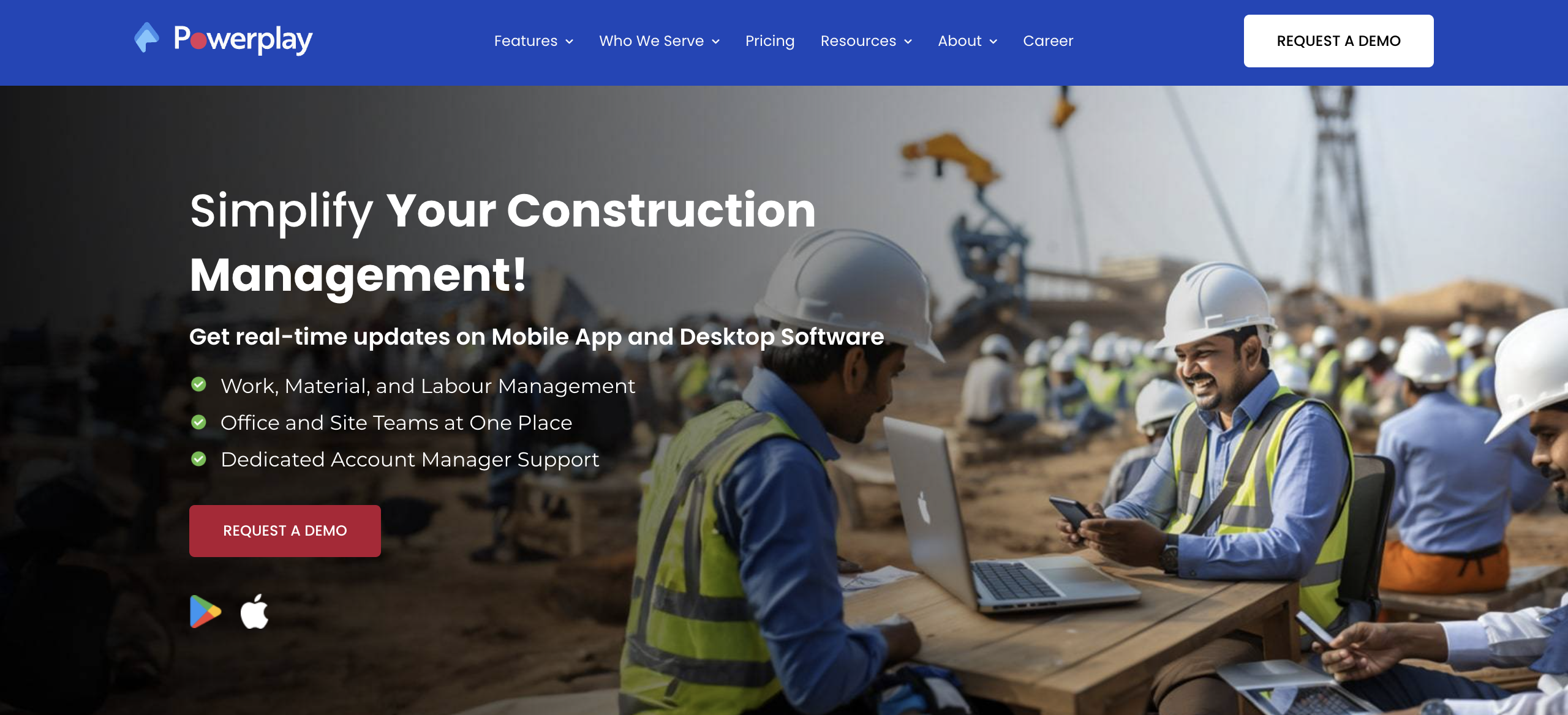
Powerplay, India’s most trusted construction app, has been a game-changing construction management software that revolutionises how we manage inventory in construction projects. It provides powerful features like real-time inventory tracking, automated procurement workflows, and material utilisation analytics. These features help to efficiently allocate resources, reduce waste, and ensure timely material availability, making inventory management easier, more efficient, and more cost-effective.
Let’s explore these features in detail:
Real-time Inventory Tracking (Inventory)
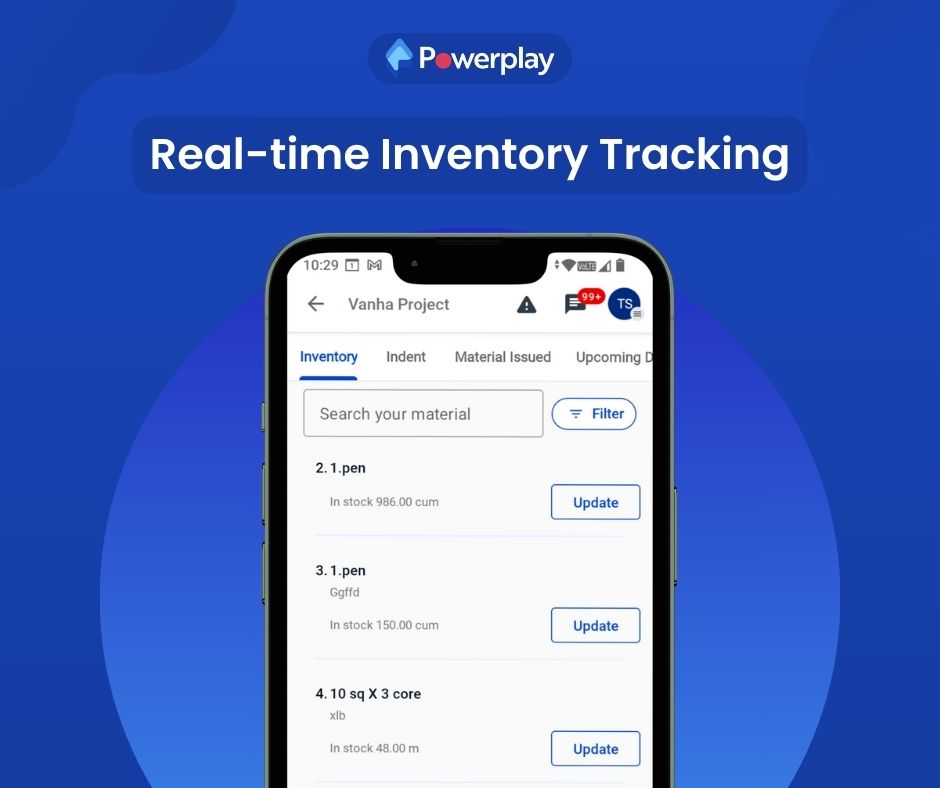
Powerplay’s real-time inventory tracking feature allows construction teams to monitor material stock levels on-site continuously. With this feature, users can add inventory materials along with their quantities, track how much new stock is available and order inventory accordingly for their usage.
Material Utilisation Analytics (Material Issued)
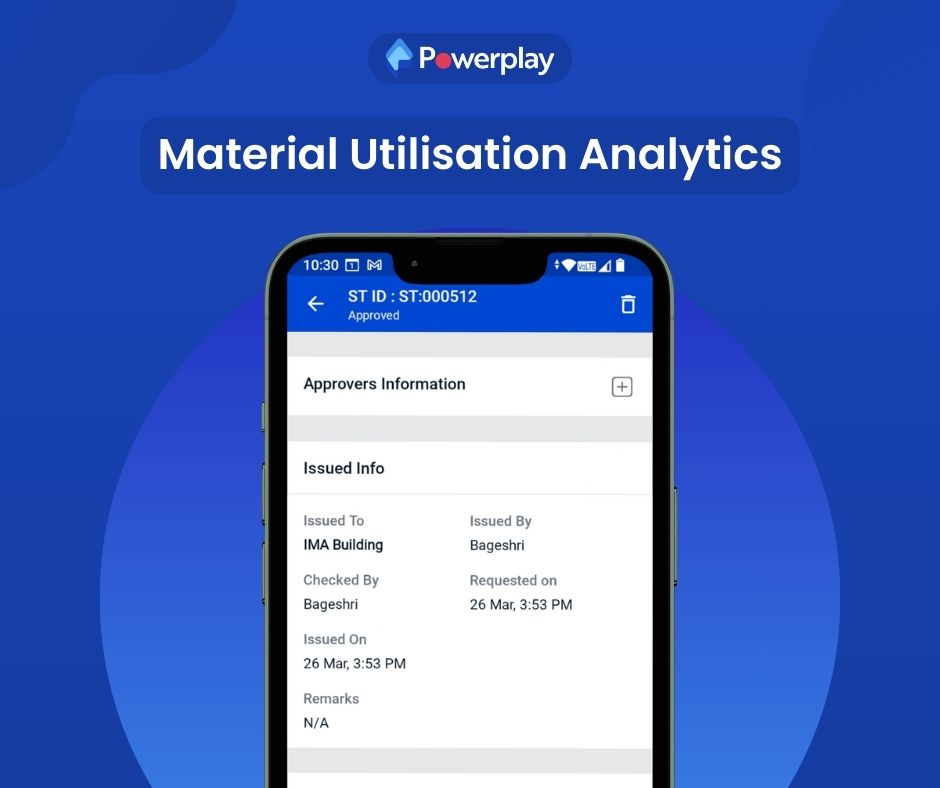
This feature allows you to assign inventory materials to any sites or subcontractors. You can easily request new material approvals or check the live status of already issued material. Users can also gain insights into the quantity of materials issued for specific tasks or projects to identify areas of wastage and improve efficiency.
This feature streamlines the procurement process by automating workflows for creating and approving material indents (requests). Users can create indents for materials needed with photos, set approval hierarchies, and track the status of indents. They can also share the downloaded PDF of Indents. This feature helps to integrate with suppliers for seamless order placement and tracking.
Streamlining Material Procurement (Upcoming deliveries)
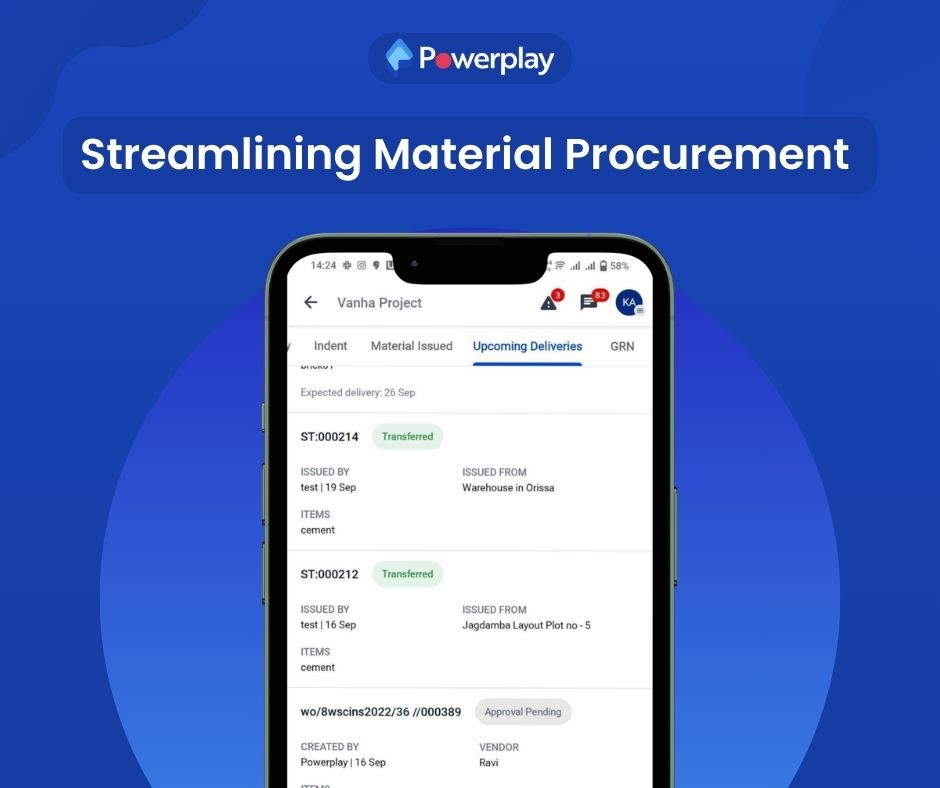
This feature focuses on managing and tracking upcoming deliveries of materials to the construction site. With this feature, users can view schedules of upcoming deliveries, track the status of orders, and coordinate with suppliers for timely delivery. The platform may provide notifications for upcoming deliveries to ensure preparedness.
Good Received Notes (GRN)
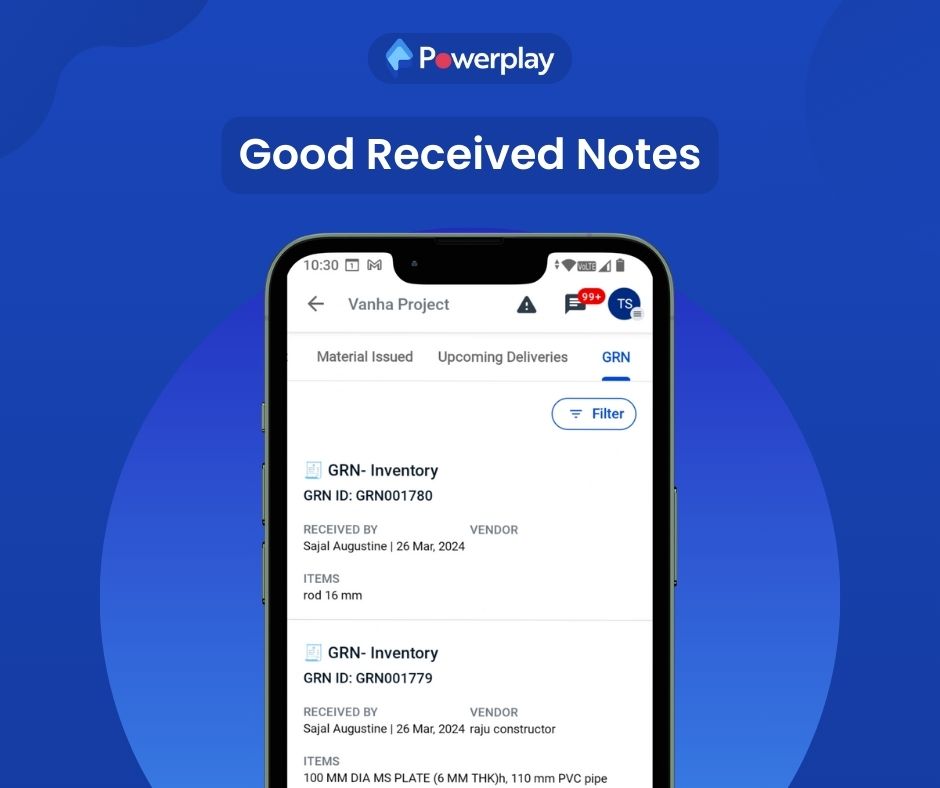
With this feature, users can have clear insights into material purchased order information, material indents and details on how much material is delivered. In short, it is like having a clear idea of how much material the user has purchased versus how much has been delivered on-site, along with the details of the assigned vendor.
Pros:
- Real-time inventory tracking enhances material management efficiency.
- Automated procurement workflows streamline the ordering process.
- Material Utilization Analytics help in reducing waste and optimizing resource use.
- Mobile accessibility allows for on-the-go management of construction projects.
- Integrates easily with other systems for a seamless operational workflow.
Capterra Rating – 4.6/5
Zoho Inventory:
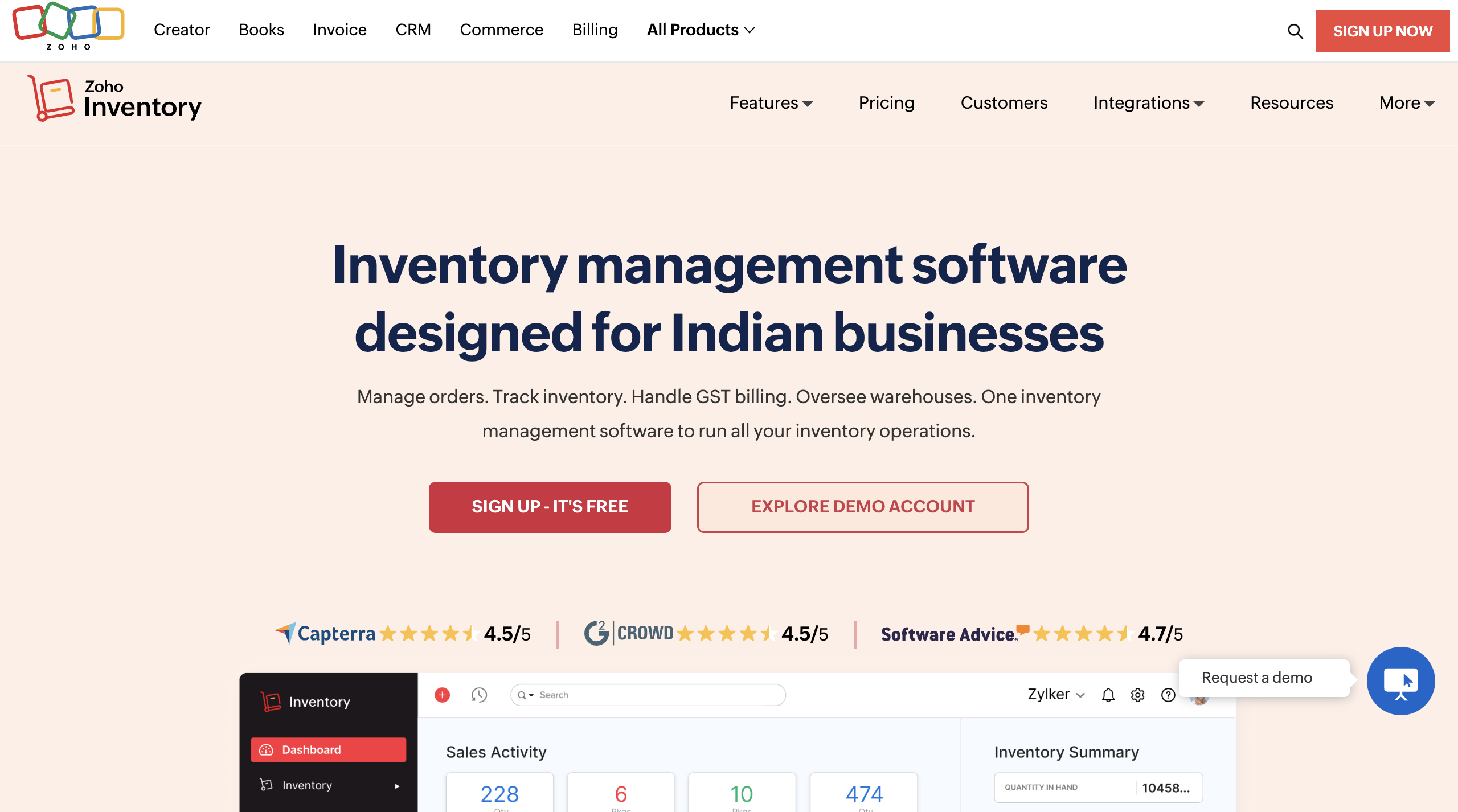
Zoho Inventory is a cloud-based inventory management solution tailored for small to medium-sized businesses. This software helps construction companies streamline their material requisition, tracking, and consumption processes, ensuring effective resource management.
Key Features
- Real-time inventory tracking using barcode and RFID systems.
- Integration capabilities with various e-commerce platforms and shipping carriers.
- Mobile accessibility through apps for iOS and Android, allowing inventory management on the go.
- Detailed reporting and analytics to help with decision-making.
- User-friendly interface that simplifies navigation and management tasks
Pros:
- Comprehensive feature set
- Strong e-commerce integrations
- Mobile-friendly interface
- Competitive Pricing
Cons:
- Limited customisation
- Learning curve present
- Mixed customer support reviews
Capterra Rating – 4.7/5
Vyapar:
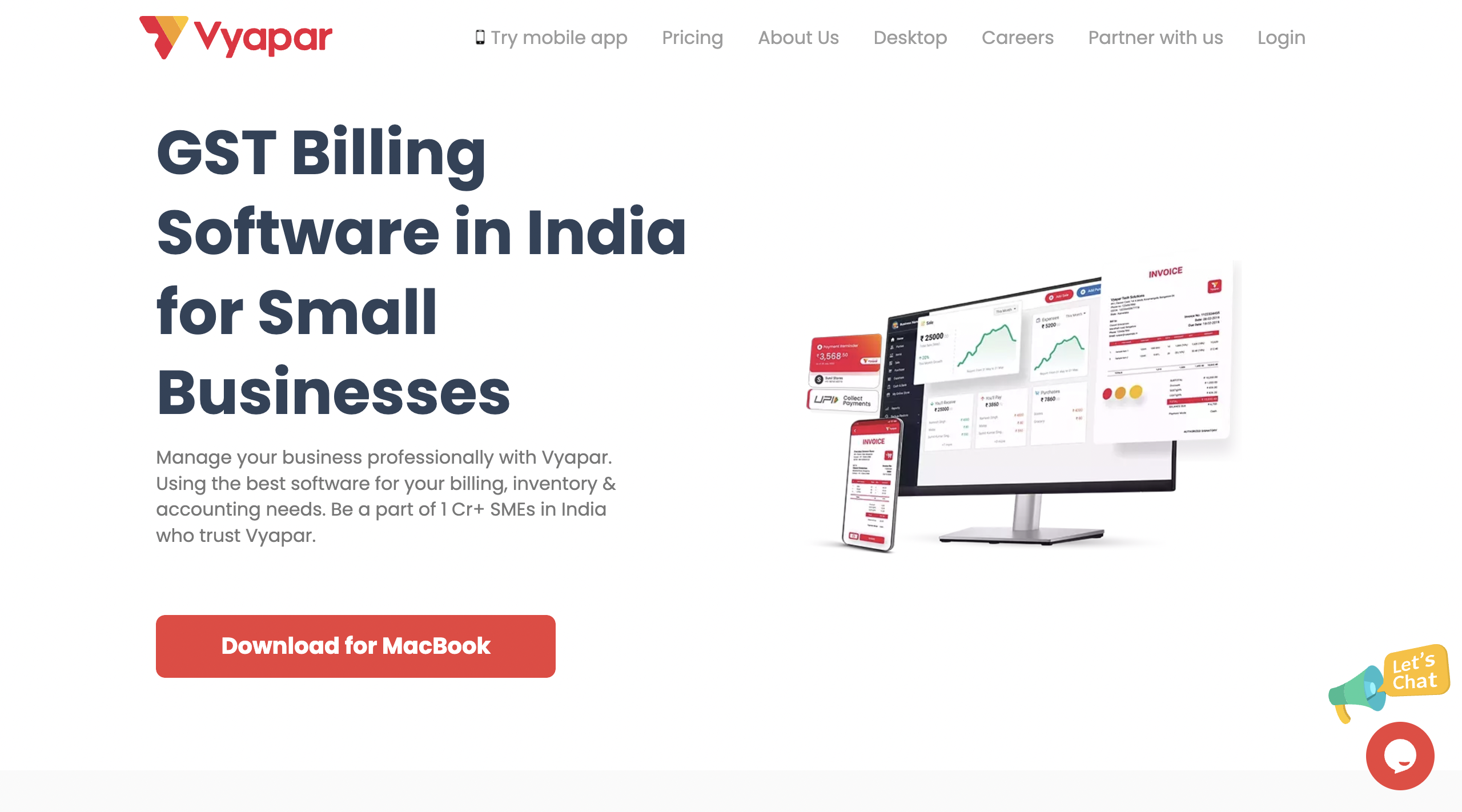
Vyapar is primarily billing and accounting software that provides features for inventory management. It’s designed for small businesses in India and supports GST invoicing, inventory control, and basic accounting tasks. Vyapar can be particularly useful for construction firms looking to manage their supplies, financial accounting, and compliance all in one platform.
Key Features
- Designed especially for small businesses, offering features like invoicing, accounting, and inventory management.
- Supports barcode scanning and provides an intuitive dashboard for monitoring business activities.
- Allows customisation of invoices and reports to match the business branding.
- It offers data security with options to back up data to Google Drive or Dropbox.
Pros:
- Ideal for small businesses
- Simple and intuitive use
- Offline functionality
- Affordable pricing options
Cons:
- Limited advanced features
- Primarily for the Indian market
- No cloud version of iOS
Capterra Rating – 4.7/5
AlignBooks:
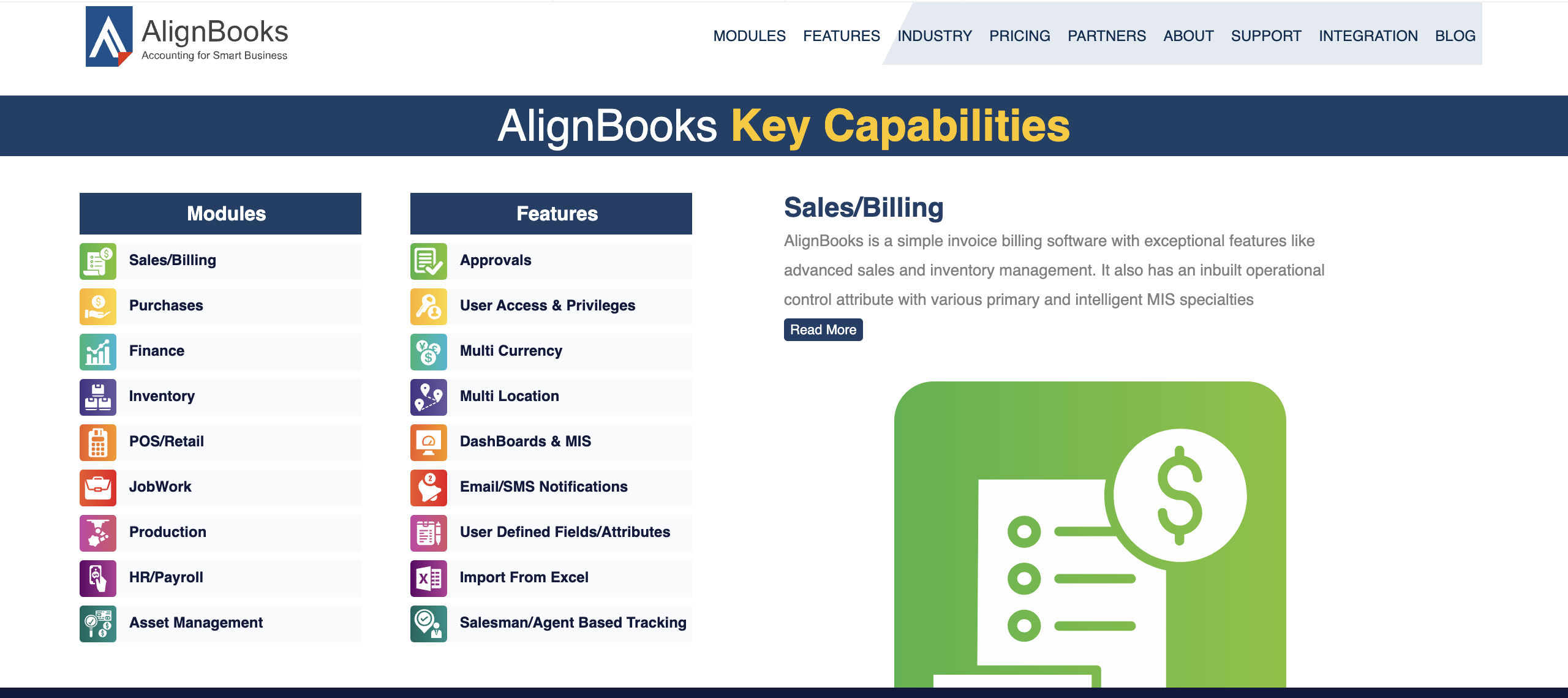
AlignBooks: AlignBooks offers comprehensive business management software, including inventory management, billing, and accounting. It’s designed for small and medium enterprises and is customisable to suit various business needs, including those of construction companies.
Key Features
- Offers features like invoicing, billing, and inventory management tailored for small to medium-sized businesses.
- Provides tax management tools and integration with e-commerce platforms.
- Includes capabilities for handling multiple warehouses and complex inventory scenarios.
Pros:
- Multi-feature business tool
- Customisable invoices
- Integrated tax management
- Supports multiple warehouses
Cons:
- Steeper learning curve
- Limited third-party integrations
- Primarily suits Indian SMEs
Capterra Rating- 4.5/5
QuickBooks Online:

QuickBooks Online is an inventory management software that offers robust inventory management features. It allows companies to track stock levels, manage vendors, and automate procurement processes. QuickBooks Online can integrate financial management with inventory control for construction firms, providing a holistic view of business finances and material resources.
Key Features
- Provides inventory tracking and management, integrated with overall financial management tasks.
- Offers real-time data on sales, expenses, and profit margins.
- Supports various third-party app integrations, enhancing its functionality for inventory management.
- Features include automatic syncing of inventory and order management across sales channels.
Pros:
- Extensive reporting features
- Robust third-party integrations
- Real-time financial data
- Scalable for growth
Cons:
- Higher cost options
- It can be complex to learn
- Occasional syncing issues
Capterra Rating – 4.4/5
Tips to Choose the Correct Inventory Management Software for Construction
Choosing an inventory management software that suits company needs is the most essential thing. Here are five tips that will help you choose the right inventory management software for projects:
Assess Your Specific Needs:
Understand the specific requirements of your construction projects, including the scale, variety of materials used, and complexity of operations. Choose software that can effectively handle your specific inventory management needs.
Check for Integration Capabilities:
Ensure the software can integrate seamlessly with other tools you use, such as accounting software, project management systems, and ERP systems, to streamline all operations.
Evaluate User-Friendliness:
The software should have an intuitive interface that is easy to use. This reduces training time and helps avoid errors in handling the software.
Consider Scalability:
Choose for a software that can scale with your business growth. The software should be able to support more users, handle increased data, and integrate new functionalities as your company grows.
Read Reviews and Ask for Recommendations:
Look at reviews from other construction companies about the software’s performance and reliability. Asking for recommendations from peers in the industry can also provide valuable insights.
Request for Free Demo:
Many companies offer free demos for their software, so take a free demo to see how the software works and what features it has. This will help you understand more about the software.
Benefits Of Using Inventory Management Software For the Construction Industry
Using inventory management software in the construction industry offers various benefits that enhance operational efficiency and reduce costs.
Here are the following benefits of inventory management software:
- It offers advanced analytics and reporting that provide valuable insights into inventory usage and trends, helping managers make informed decisions about purchasing and inventory practices, which will help in better decision-making.
- Inventory management software often includes security features that help monitor and control inventory, reducing the risks of theft and misplacement.
- Real-time inventory data helps project managers ensure that materials are available when needed, preventing delays in project timelines and improving overall project efficiency.
- It will help maintain optimal inventory levels and reduce over-ordering or stockouts. With this, companies can better manage their budget and avoid unnecessary expenditures.
- Automated tracking and management of inventory reduce the need for manual checks and data entry, saving valuable time and reducing errors.
Conclusion
Choosing the best construction inventory management software is essential for streamlining operations, enhancing efficiency, and ensuring projects stay on track and within budget. So, before selecting software, check its key features, ratings, reviews, and pros and cons and choose the one that meets your operational needs and budget constraints.
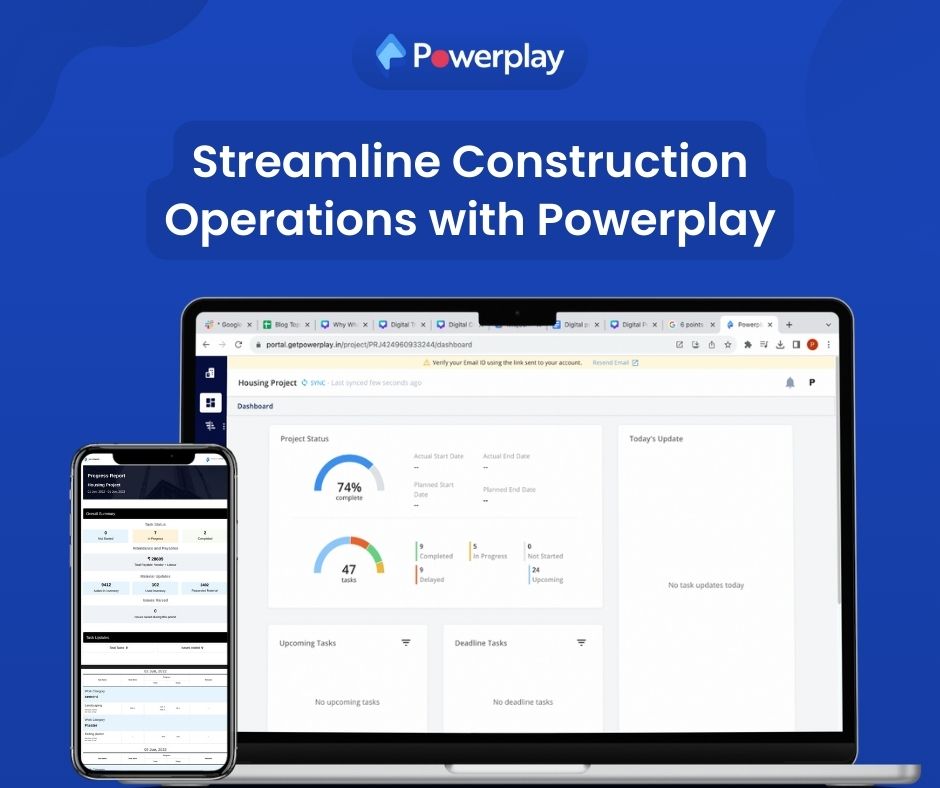
The Powerplay app has consistently been a top choice for construction management. Many companies have leveraged Powerplay to enhance their project management, making their processes more efficient and effective. So don’t miss the opportunity to see how it can streamline your operations; request a free demo now.
